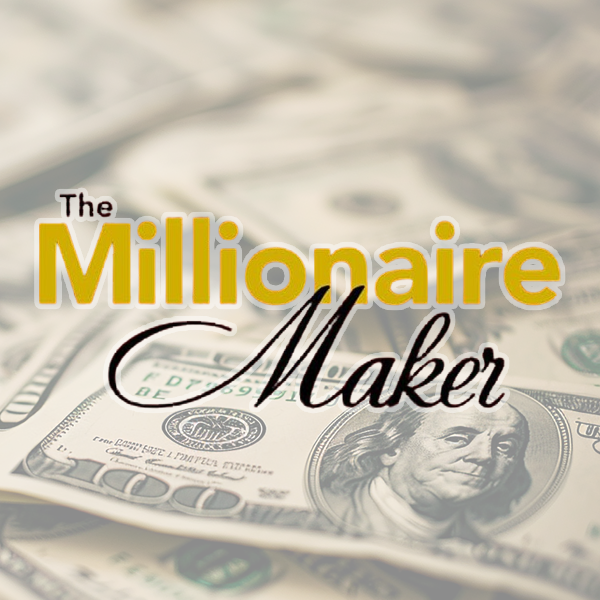The question comes up often, especially among highly educated, high-earning professionals:
“Can a doctor become a millionaire?”
The short answer? Absolutely.
The real question? Will they?
As someone who has spent over two decades helping professionals from teachers to nurses to physicians build lasting wealth, I can tell you firsthand: becoming a millionaire isn’t just about having a high income. It’s about what you do with your income, how you structure your career, and most importantly, how you leverage your skills and opportunities.
In this article, I’ll break down why so many doctors should be millionaires but aren’t, the traps that prevent them, and the specific paths from surgery centers to real estate to entrepreneurial ventures that can help medical professionals (and anyone, really) create genuine, sustainable wealth.
The Salary Illusion: Why High Income Doesn’t Equal Wealth
Let’s start with the obvious.
Doctors, depending on their specialty, often earn between $200,000 $500,000 per year, sometimes more. On paper, that sounds like millionaire status is inevitable.
But here’s the harsh truth:
Most doctors are employees.
They trade time for money, often under grueling schedules. Hospital shifts. On-call duties. Burnout is common, and their income is usually heavily taxed, with little room for wealth-building if they follow the traditional script.
Wealth doesn’t come from income. It comes from ownership.
If you’re a physician or healthcare professional reading this, the real question isn’t “How much do you make?”
It’s “What do you own?”
Where the Real Money Is: Ownership Over Employment
Let me be clear:
The fastest path to becoming a millionaire, whether as a doctor or not, is through ownership, not employment.
For doctors, the most lucrative opportunities often lie in:
- Owning Surgery Centers
- Real Estate Investments
- Private Practices Structured Differently
- Leveraging Expertise into Products & Programs
Many medical professionals are shocked to learn that owning a surgery center isn’t just highly profitable. In some states, it’s a legal requirement that only healthcare providers can own these centers. Yet, most doctors never explore this avenue, trapped in the mindset of being employees rather than entrepreneurs.
The Power of Alternative Income Streams
The wealthiest people in the world, including doctors, don’t play by traditional rules.
They embrace alternatives, and they leverage trends.
In my journey, I’ve achieved millionaire status across eight industries, with more on the horizon. How? By spotting trends, building teams, and never relying on a single paycheck.
Doctors have the perfect foundation for this:
- Launch a podcast or YouTube channel sharing your expertise
- Write a book like my good friend and client Dr. Philip Ovadia’s Stay Off My Operating Table
- Start a consulting practice or health-focused product line
- Invest in surgery centers or healthcare real estate
The key? Leverage your existing skill set and industry authority, but present it in a new and compelling way.
Avoiding the Traps: Scams, Shady Investments & Overpaying Taxes
Unfortunately, high-income professionals, especially doctors, are prime targets for scams.
Here’s why:
- You have money
- You’re busy
- You often lack deep financial literacy or time for due diligence
From sketchy real estate syndications to untested health tech startups to overpriced websites, I’ve seen countless professionals lose thousands, even millions, chasing the wrong opportunities.
One of the biggest mistakes?
Falling for “get rich quick” schemes or overpaying for services without understanding basic business fundamentals.
We’ve developed systems like AskRMS.com to help protect professionals from these pitfalls and provide them with affordable, high-quality marketing and business tools. Whether it’s building your first website or launching a scalable product line, having the right team behind you is non-negotiable.
The Harsh Reality: Wealth Requires Action, Not Excuses
I’ve helped people from all walks of life, from homeless individuals to single moms on welfare, build seven-figure wealth. What separates them from others isn’t privilege or luck. It’s this:
They weren’t lazy.
They took action.
They invested in knowledge, mentorship, and the right environment.
Most people will spend their lives paying the IRS more than they invest in themselves. That mindset keeps you stuck. The wealth-building mindset flips that completely:
Pay yourself. Pay your family. Create generational wealth.
Leverage is the Millionaire’s Secret Weapon
It doesn’t matter if you’re a doctor, teacher, artist, or entrepreneur. The formula is the same:
Leverage Your Skills: Add tutoring, consulting, or product creation
Leverage Your Network: Build a database of followers and clients
Leverage Your Marketing: Get the right systems in place to scale
Would you rather sell to a million people for $10 each or chase one person for a million-dollar check?
The wealthy often opt for scalable, leveraged models.
The Path to Millionaire Status for Medical Professionals
Let’s summarize how medical professionals can realistically build seven-figure wealth:
- Shift from Employee to Owner: Own surgery centers, practices, or real estate
- Leverage Expertise: Write books, launch podcasts, create online programs
- Explore High-Demand Alternatives: Supplements, health products, consulting
- Protect Against Scams: Use trusted systems, do your research
- Invest in Mentorship & Community: You can’t do this alone
- Master Marketing & Lead Generation: Tools like AskRMS are critical
- Adopt the “So What? Now What?” Mindset: Life happens; wealth comes from action
Final Thoughts: It’s Not About IF You Can Become a Millionaire, It’s About IF You Will
Becoming a millionaire isn’t reserved for Silicon Valley tech founders or Wall Street elites. It’s achievable for doctors, nurses, teachers, and anyone willing to play the game differently.
But you have to stop thinking like an employee.
You have to start thinking like an owner.
You must also be willing to do the work, seek mentorship, avoid common pitfalls, and build systems that scale.




